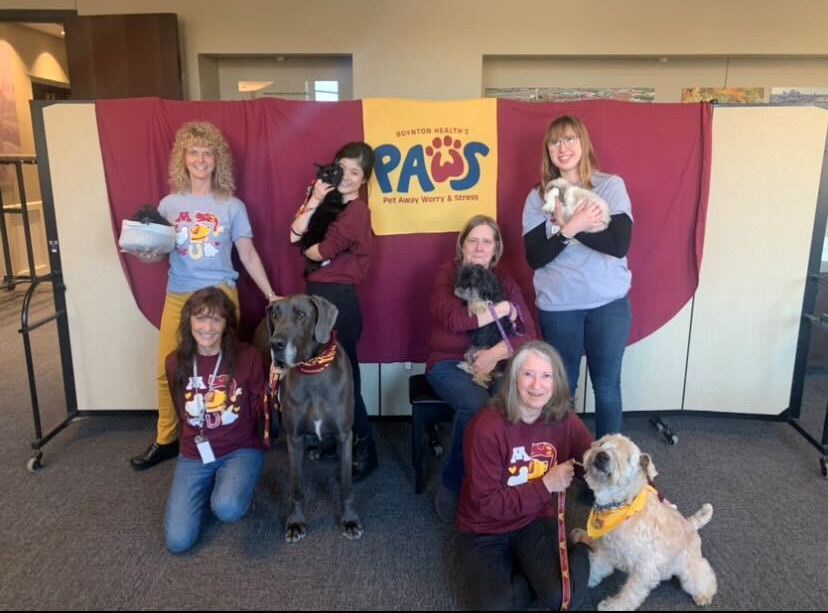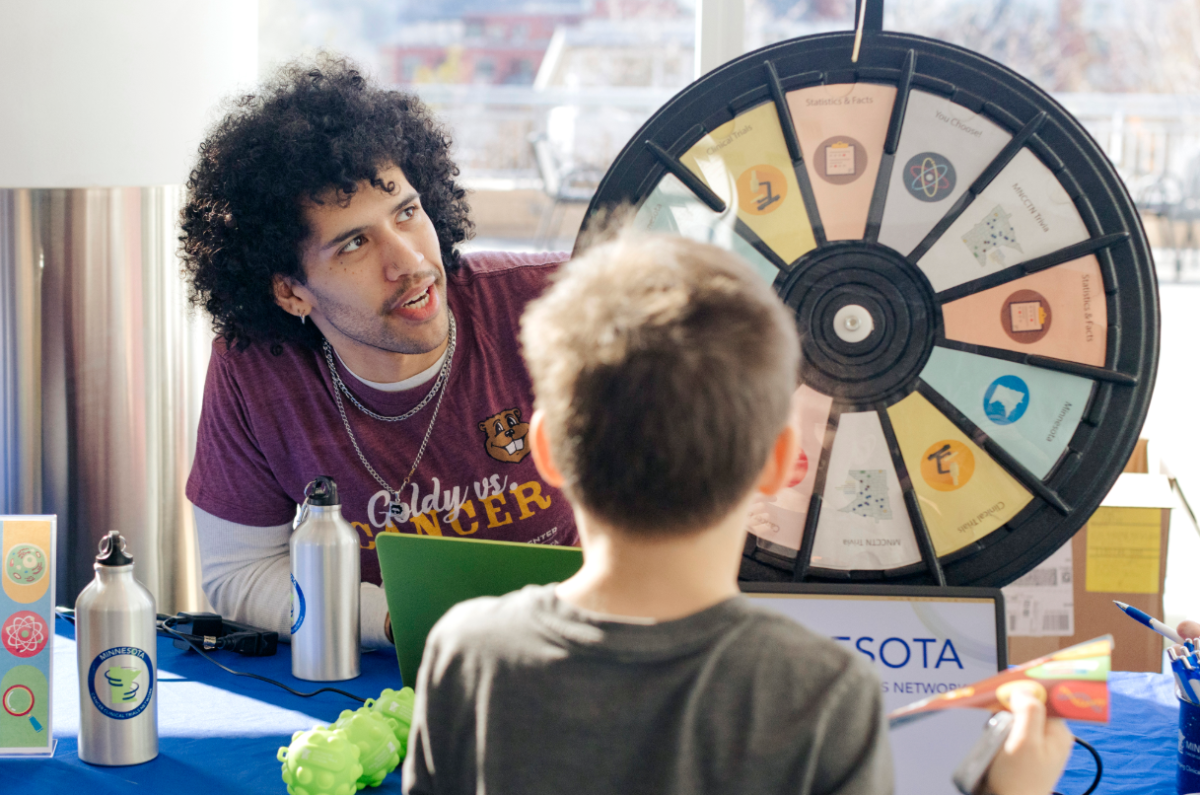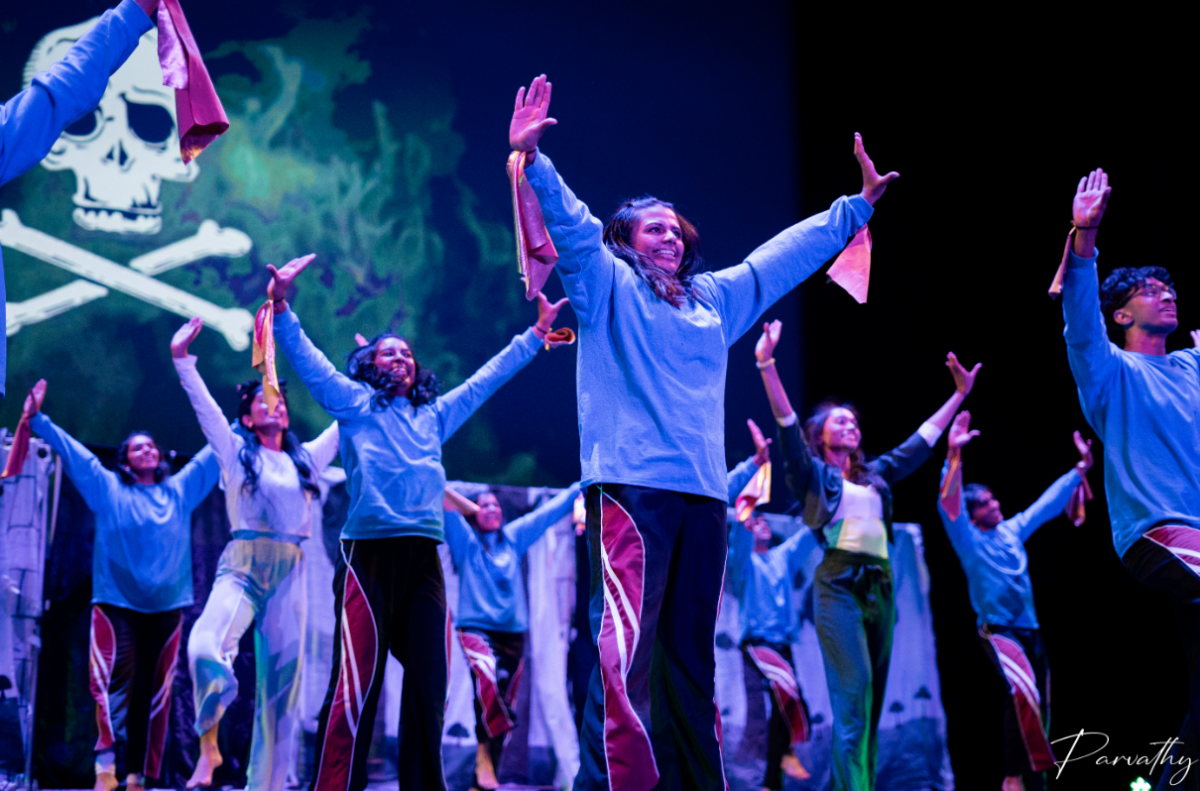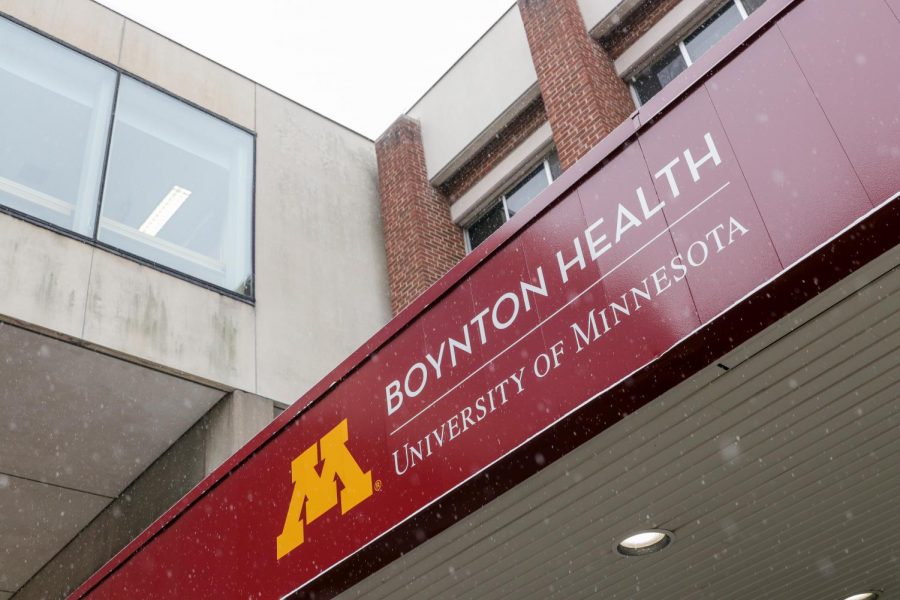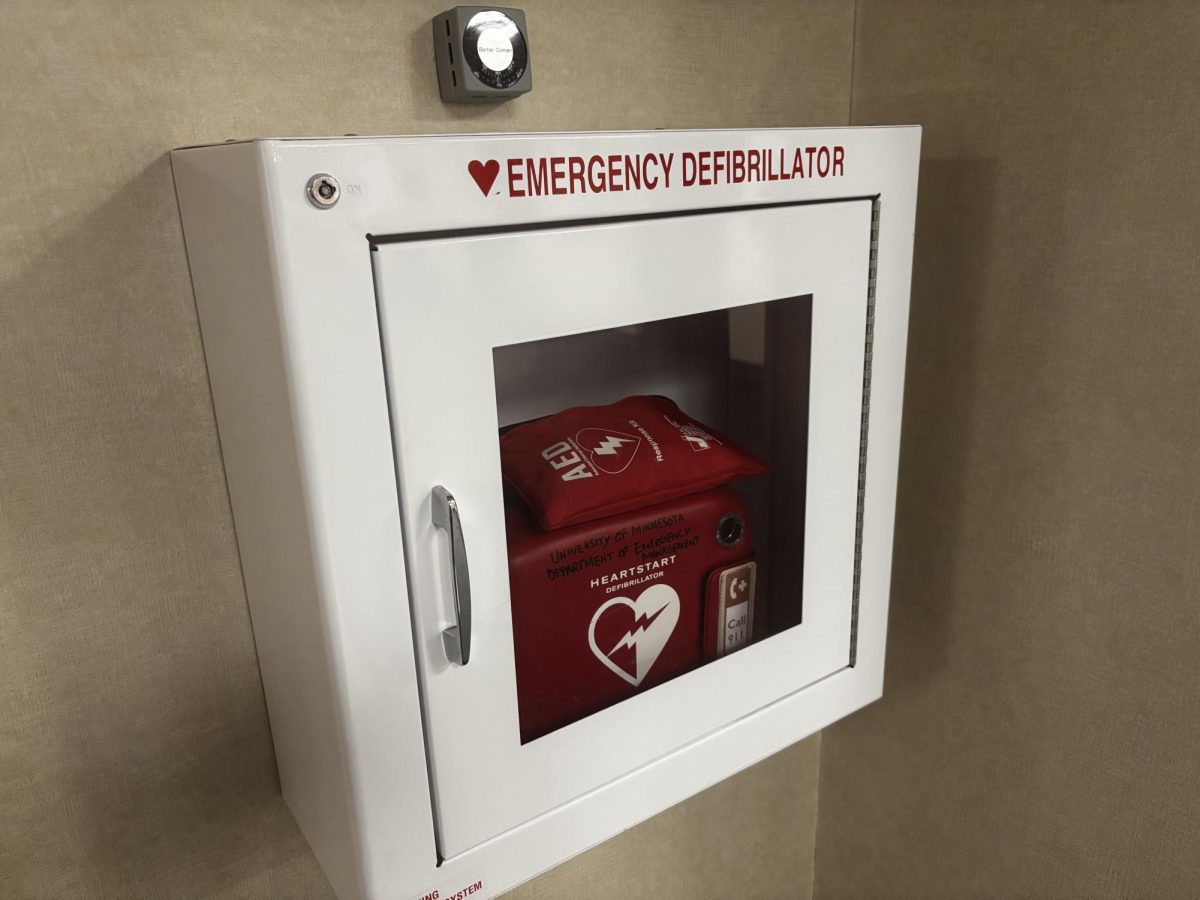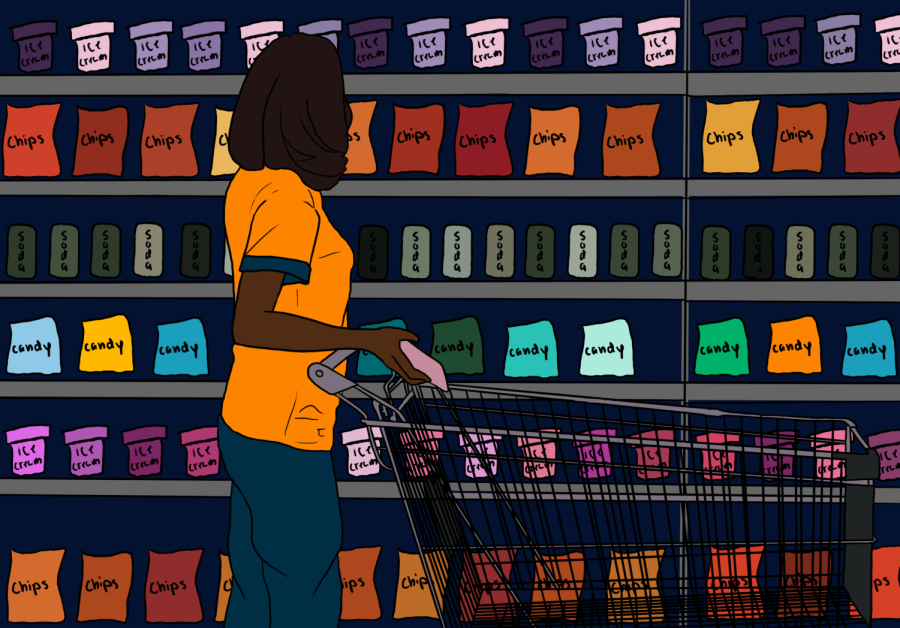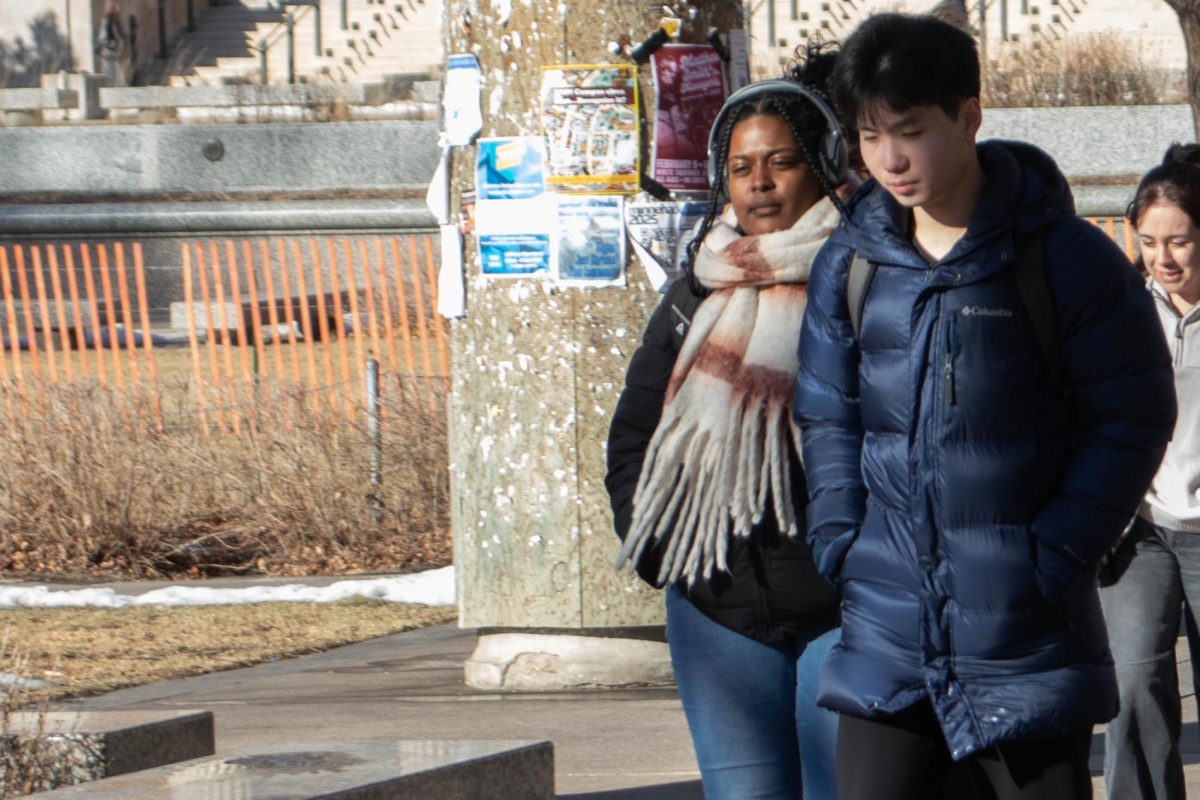A decade ago, University of Minnesota Boynton Health’s Pet Away Worry and Stress (PAWS) program opened its doors to students as a way to improve students’ mental health. Now a successful and popular program, PAWS looks to expand its impact.
PAWS celebrated its 10th anniversary with four celebratory sessions this past week, all including cookies, donuts, t-shirts and, of course, animals.
Tanya Bailey, Boynton Health’s PAWS program manager and animal-assisted interactions coordinator, said they did not do a lot of marketing for the event but were on track to see about 1,000 people that week, compared to 500 or 600 people on regular weeks.
Bailey has been working at PAWS since it started in 2013 and has been through the challenges and the rewards of the program.
According to Bailey, the worst was when PAWS sessions had to be canceled because of the weather.
“What we’re trying to do with this program, this is based in public health, and the overall theme is wellness, mental health and in order for it to make an impact in your life, you need regularity,” Bailey said.
Much to Bailey’s relief, she said PAWS has only been canceled about ten times in the ten years of its running.
Bailey said she finds the best part of the program is the engagement with students and what the program means to them. When students are brave enough to tell her why PAWS is important to them, whether it is suicide, drug use, sexuality or gender change, Bailey said it is rewarding to know this program means a lot to them.
“It almost makes me cry,” Bailey said. “I look at all these students and I think, ‘Saving one life is worth it.’”
Mary Patterson is a first-year student who has been coming to the Thursday PAWS sessions as much as she can. When she arrived at the 10th-anniversary PAWS session on Thursday, it was her fourth week in a row participating.
“I miss my dog from home a lot so I love coming to see all the dogs and getting to know their owners and just appreciate all the time they put in to help all the University students,” Patterson said.
According to Patterson, it is important for students to know all the therapy dogs are trained, so there is no risk of harm, and the owners work to make sure everyone is comfortable no matter what.
Nancy Skoyles Greenberg, a volunteer at PAWS, said it is important for students to know the dogs are not just pets, as they are all trained and required to pass a specific test in order to participate.
Skoyles Greenberg used to volunteer at PAWS with her dog, Dottie, before Dottie died in 2020. The 10th-year anniversary was Skoyles Greenberg’s first time back in about three years.
“I missed the fine people,” Skoyles Greenberg said. “It’s fun, and I know that my first dog really enjoyed it. When she would see her favorite people, she would go crazy and then the kids would love it.”
While Skoyles Greenberg said she feels PAWS advanced since she first started, she also knows some students wish to have a variety of animals, like more cats. PAWS used to have fancy rats, mini horses and even llamas at one point, according to Skoyles Greenberg.
Now, PAWS sessions feature registered therapy animals such as dogs, cats, rabbits and chickens.
Third-year student Jenny Geng said she attended PAWS once two years ago but decided to come back for the 10th anniversary because her roommate went the day before and was happy to attend.
“I love it here,” Geng said. “I skipped class to come here and it was such a good decision, I’m so happy.”
Geng said she likes seeing the animals because she does not see a lot of dogs on campus since not many college students have time to care for a pet.
PAWS’s rotation of locations and times each day of the week is something Geng said she likes, as it helps students attend despite their class schedules.
First-year student Jacob Hirsch attended PAWS for the first time on the 10th anniversary and said he was interested in coming back.
While Hirsch said he was excited to pet a dog, he originally decided to attend in order to fulfill a College of Liberal Arts 1001 requirement of attending a U-thrive event.
Bailey said she loves working with college students and is hoping to contribute to research surrounding college students and work like PAWS.
“This is not a hard program for colleges and universities to do but it does take some very significant organization and you have to be prepared for what it could open up for students,” Bailey said. “A lot of people don’t think about that.”
According to Bailey and surveys she has given to students, the more students attend and the longer they stay at PAWS events, the more they report the program impacted their mental health.
Despite the success of the program, Bailey said she realizes there are always going to be challenges involved, including budget cuts and not taking the bountiful amount of volunteers for granted.
“Even though this is a ten-year-long program, it doesn’t mean it can’t go away tomorrow,” Bailey said.


